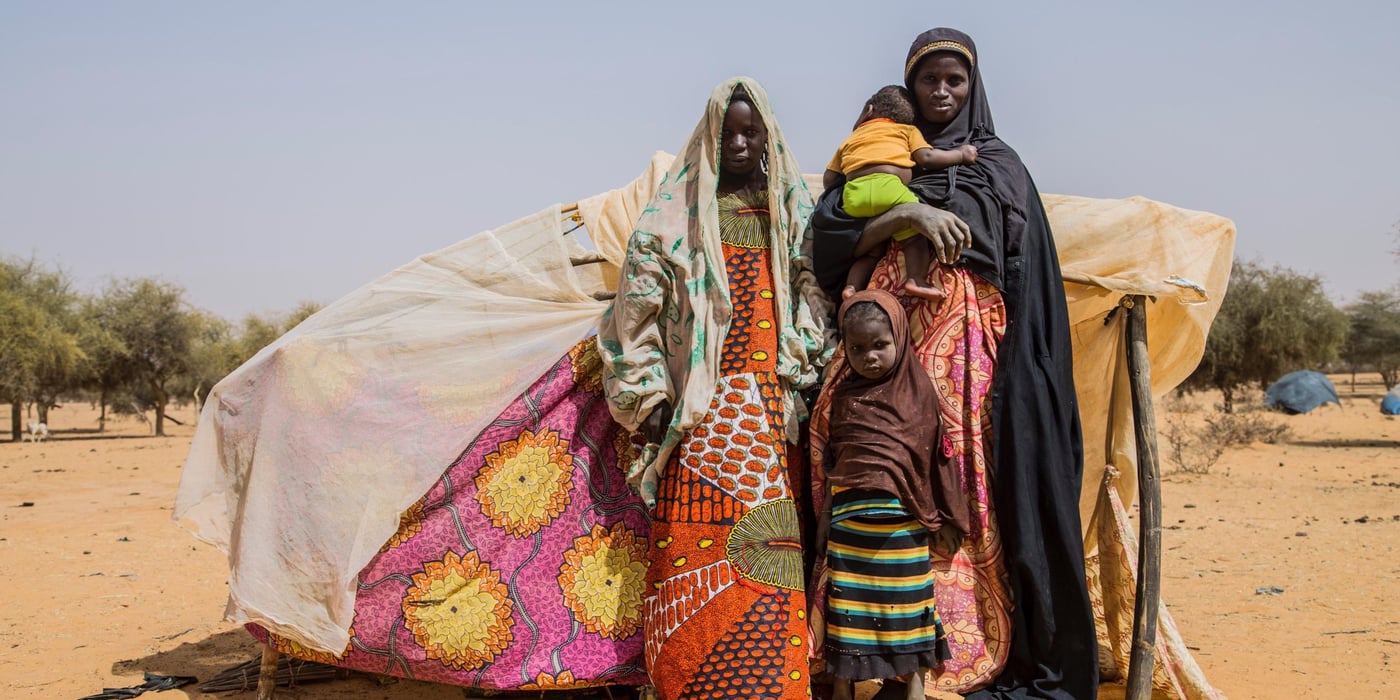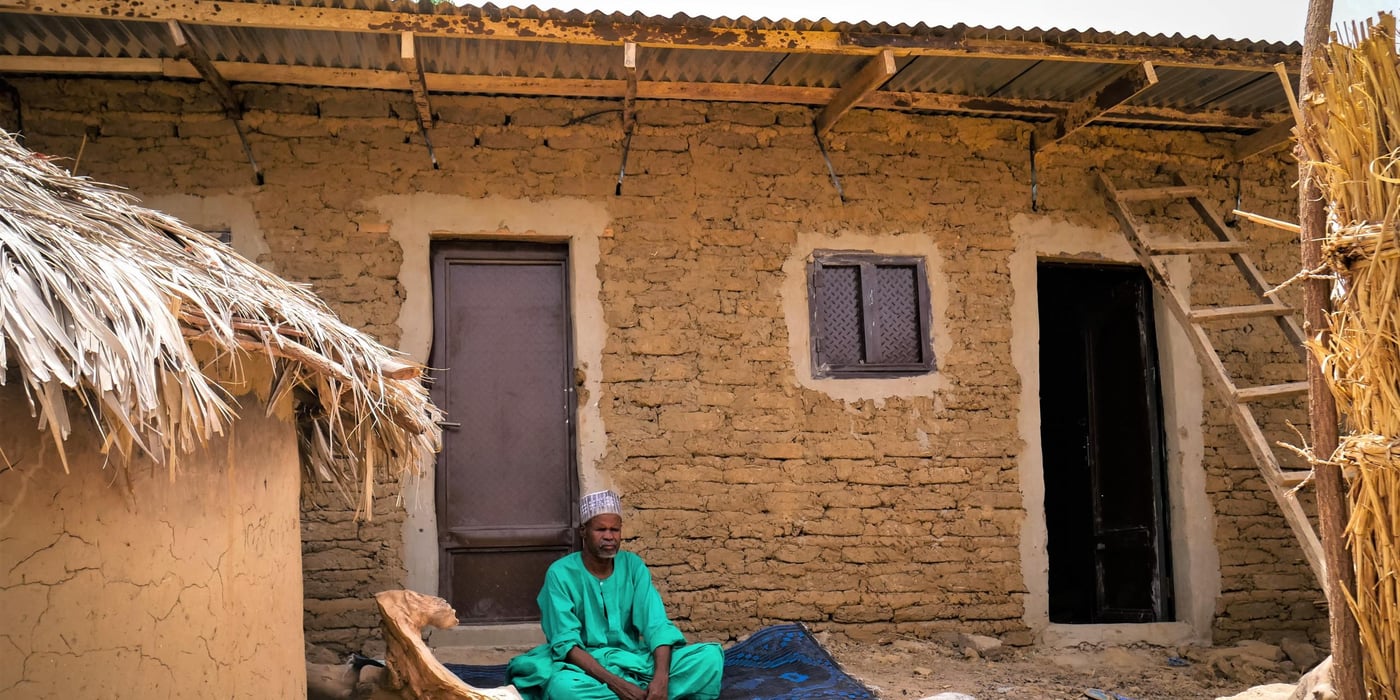
Mohamadou, a 53-year-old blind man, and his family barely made it out alive. When his town was attacked in October of 2014, he, his wife and his son swam across the Yobe river and into Niger.
“If it weren’t for my wife and my son, I wouldn’t have made it out alive,” Mohamadou admits. “Because I’m blind, I was helped to the river bank.” The Yobe river forms a natural border between Nigeria and Niger and flows into Lake Chad. “We could hear gunshots all around. We swam across the river – like fish.” After crossing the river, the family walked for a day to find refuge in Niger. When they finally arrived, Mohamadou collapsed.
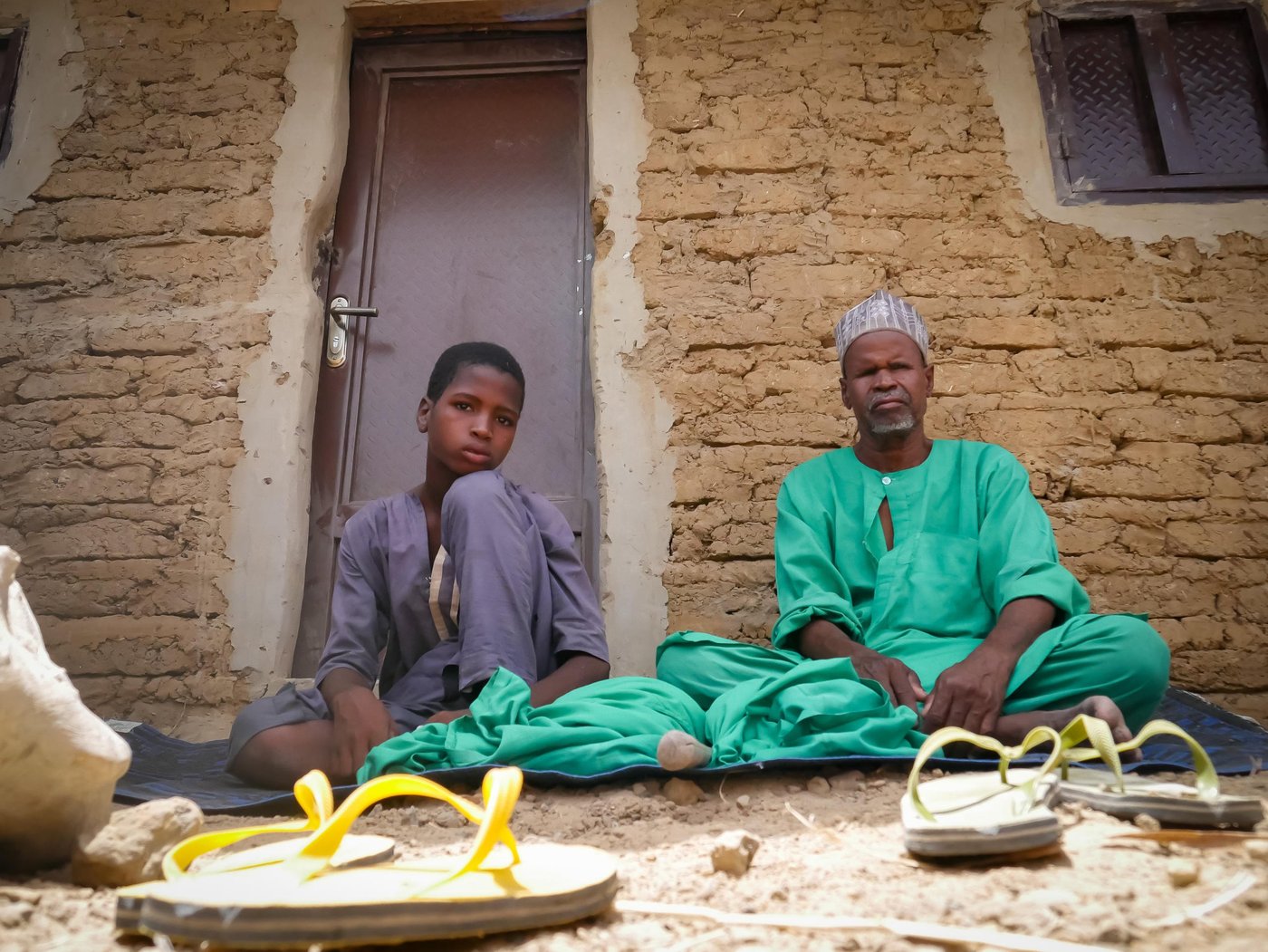
Since 2009, Boko Haram’s violence in north-eastern Nigeria has led to the displacement of more than two million people. The non-state armed group is one of the world’s deadliest, and their violence stretches across the entire Lake Chad region.
The disabled struggle to access aid
Mohamadou and his family escaped, but the challenges were compounded by his disability. As a blind man, he depends on help from his spouse, children and neighbours. As a refugee in Niger, his disability often hindered his access to humanitarian aid.
"I would wait in line with my young son to get aid, but adult refugees would kick children away, including my son. We were too weak to fight back and would often lose our turn and return without getting anything from the distribution," he says. “We had nothing with us when we fled.”
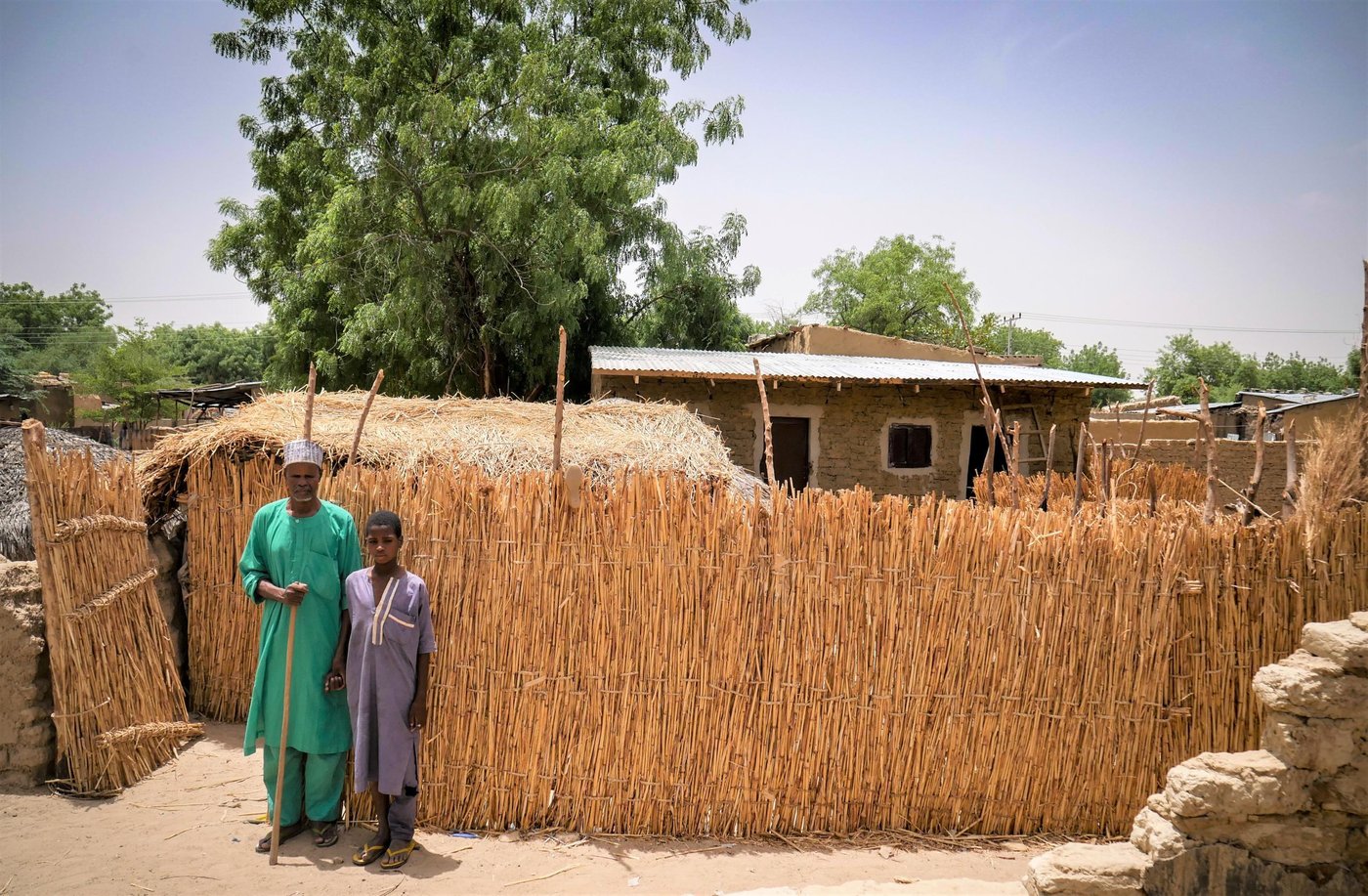
“When fleeing conflict, disabled people are among the most vulnerable, and are more likely to be side-lined in every aspect of the humanitarian assistance process,” says Cheick Ba, our Country Director in Nigeria.
“They face multiple barriers in accessing aid, information, healthcare and protection. We, humanitarians, must do much better in our work. We have to systematically identify and register displaced persons with disabilities,” Ba continues.
Cross-border Boko Haram attacks
Niger, one of the poorest countries in the world, has also endured several attacks perpetrated by Boko Haram. It is estimated that more than 200,000 people are currently displaced in the south-eastern part of the country, including refugees, returnees and internally displaced persons.
For two years, Mohamadou and his family lived in a refugee camp in southeast Niger. There, they found some safety despite the precarious living conditions and repeated attacks by Boko Haram.
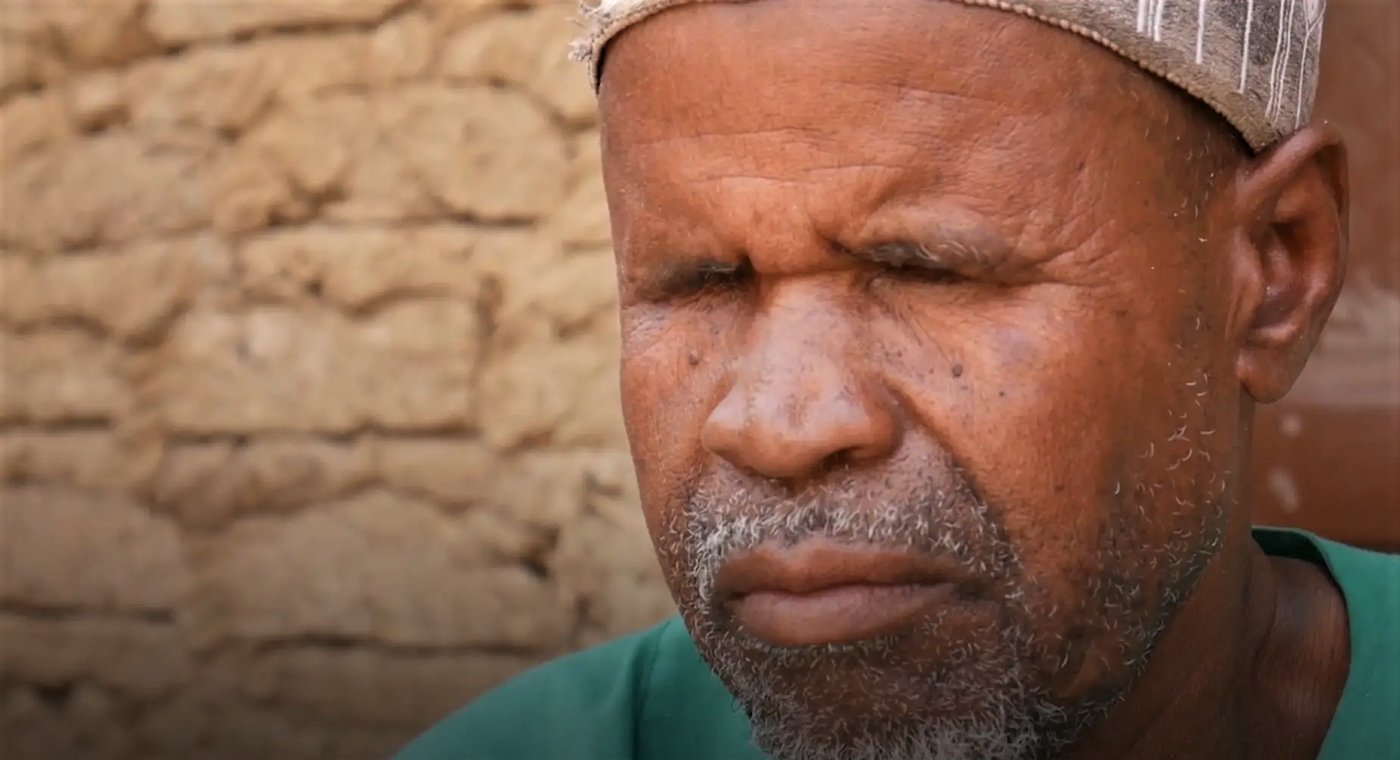
A town in ruins
Although retaken by the military in July of 2016, Damasak, the forlorn Nigerian town, still bears the marks of Boko Haram’s reign of terror and brutality, Electrical towers have been blown up, carcasses of torched cars line the streets and houses are now merely empty shells with their erstwhile roofs lying on the ground.
Last year, some residents began returning to Damasak, including Mohamadou and his son. Very little of their house remained - only the walls, covered in smoke residue, were still standing.
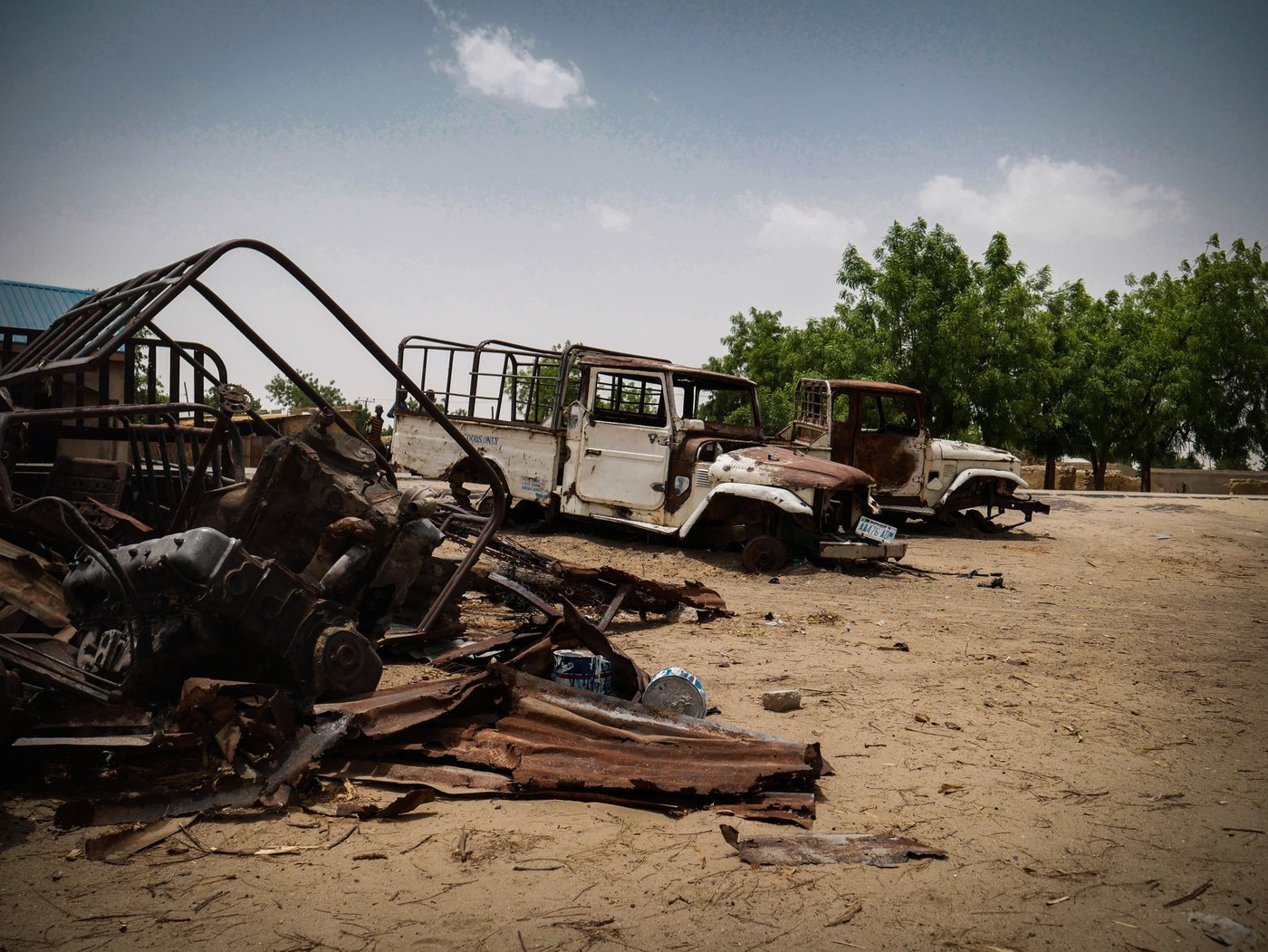
Last May, the Norwegian Refugee Council (NRC), through funds from the Norwegian Ministry of Foreign Affairs, carried out the rehabilitation of Mohamadou’s home. After three days of intensive work, our team completed the construction of a new roof and the installation of doors and windows. The walls were cleaned and fixed to make Mohamadou feel at home again.
When we met Mohamadou he was back home, with his wife still in Niger, waiting for the rehabilitation of their home to be completed, yet the fear of being attacked again by Boko Haram haunts him. “I cannot forget the day Boko Haram came and attacked us. I live with memories of that day, and I always fear they could come again.”
Mohamadou explains that even though many returnees have lost their means of livelihood, they wanted to come back because, in his words, “this is our home”, and they want to help rebuild it.
See more photos and stories from Damasak, Nigeria here.




